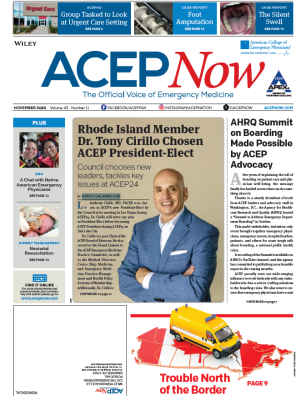The questions of whether to buy a house during residency and whether to pay off a mortgage or student loans first have both a short and a long answer. The short answer is, “no and neither.” The long answer is a great discussion of some principles of personal finance and investing.
Explore This Issue
ACEP Now: Vol 37 – No 08 – August 2018Inexperienced and first-time homeowners often make two mistakes that lead them to buy a home inappropriately. It isn’t entirely their fault. There are entire industries—home builders, real estate agents, lenders, and title agents, to name a few—that are highly incentivized to encourage physicians and others to buy homes early and often, regardless of the financial consequences.
Don’t Get Sucked in by Homeownership Myths
The first mistake is the assumption that if the monthly mortgage payment is less than rent, then it is a good idea to buy a home. The second mistake is the assumption that if you sell a home for more than you paid for it (ie, that you made money), then you made a good financial decision in buying it. Unfortunately, neither of these is true. However, myths like these, combined with a seemingly odd but nearly universal burning desire to acquire a home by residents (and perhaps their significant others), have led many doctors to lose a lot of time, effort, and money due to their decision to purchase their residence during residency.
Physicians don’t always lose money buying a residency home. I figure that during a three-year residency, they end up coming out ahead about one-third of the time. That likely climbs to 50 percent of the time with a five-year residency. I am a big fan of long-term homeownership for societal, social, and financial reasons. However, the general rule should be to buy a home only when both your social and professional situations are stable. Since residency is, by its very nature, an unstable professional situation (and often an unstable social situation), most residents would be well-served by renting a home throughout their entire residency. They are likely to come out ahead financially, and even if they don’t, they are unlikely to come out very far behind.
They say time heals all wounds, and this is also the case with homeownership. The longer you own a home, the more years the substantial round-trip transaction costs (typically about 15 percent of the purchase price) can be spread over. If you need a home to appreciate 15 percent to cover your transaction costs (real estate agent fees, title insurance, loan costs, upgrades, mortgage payments after vacating, etc.) but a home only appreciates at 3 percent per year, it is easy to see why it typically requires about five years for homeownership to have been a good financial decision. There is a sense that you throw away money on rent but build equity by paying a mortgage. Nobody ever stops to think that you also throw money away on real estate agent fees, title insurance, property taxes, mortgage interest, lawn maintenance, and a new roof.
Things to Consider If You Do Buy
If you have decided that you are one of the few who should disregard the above advice and are now wrestling with the question of whether to pay down the mortgage or pay off student loans, bear in mind that the right decision of what to do with disposable income may very well be neither. The first financial priority for disposable income for a resident is often obtaining the match in the hospital 401(k) or 403(b). In addition, investing in a Roth IRA or your employer’s Roth 401(k) or Roth 403(b) is also an excellent use of disposable income. Paying off consumer debt like credit cards and car loans and building up an emergency fund of three months of expenses are also excellent uses of disposable income. At any rate, you are certainly not limited to paying down debt.
Of course, don’t pay down debt that you expect someone else to pay off for you. If you anticipate being directly employed by a 501(c)3 (nonprofit) employer after residency, then enroll in and start making payments in an approved income-driven repayment program, like REPAYE, to maximize the amount you may be able to have forgiven, tax-free, through the Public Service Loan Forgiveness program. Private employers may also be willing to pay off some or all of your debt. If you anticipate paying off your loans yourself, then making extra payments is certainly a good use of disposable income. The decision of whether to invest or pay down debt, barring a few extreme situations, has no correct answer—only a correct answer for you. Given the limited disposable income and all the great uses of it for the typical resident, it seems unlikely the best use would be to pay down mortgage debt.
The most important financial task for residents, at least after acquiring basic insurance policies like disability insurance and, if someone else depends on their income, term life insurance, is to develop a written financial plan for what they will do with their first 12 monthly paychecks after residency. The habits put in place during this most important year of a physician’s financial life will largely determine the financial pathway for their remaining five to seven decades.
While your primary focus during residency should be learning to become a compassionate and competent emergency physician while maintaining your wellness and that of your colleagues, it is also the time to begin laying the foundations of financial success. You can do this by becoming financially literate and making smart decisions about housing, spending, saving, and investing.
Pages: 1 2 | Multi-Page



No Responses to “Should I Purchase My Residence During Residency?”